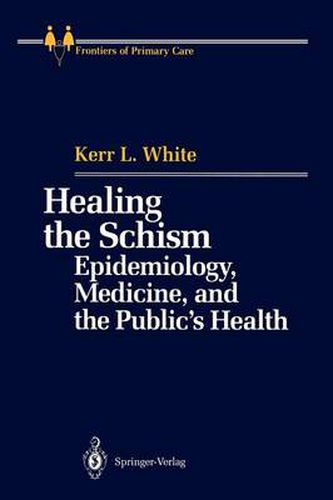Readings Newsletter
Become a Readings Member to make your shopping experience even easier.
Sign in or sign up for free!
You’re not far away from qualifying for FREE standard shipping within Australia
You’ve qualified for FREE standard shipping within Australia
The cart is loading…






This title is printed to order. This book may have been self-published. If so, we cannot guarantee the quality of the content. In the main most books will have gone through the editing process however some may not. We therefore suggest that you be aware of this before ordering this book. If in doubt check either the author or publisher’s details as we are unable to accept any returns unless they are faulty. Please contact us if you have any questions.
My conviction is that the matters addressed in this volume are of transcendental importance if we are to face up to the challenges of the 1990s and beyond. How, for instance, are we to cope with a truly ecological approach to public health and all its concomitant changes of risk groups worldwide unless there is a full appre ciation of the popUlation perspective throughout the health establishment? The global village has achieved a measure of interdependence requiring recognition by all concerned with the health of both individuals and communities that there is an urgent need to share our knowledge and deploy our resources in the best interests of people everywhere. The history of public health initiatives, the origins of epidemiology, and the tragic separation-virtually a divorce–of public health from medicine recounted in the chapters that follow argue strongly for an early rapprochement. Health professionals who complement each other’s knowledge and skills can be reunited through their common reliance on epidemiology as a major fundamental science for the entire health enterprise. Henceforth, epidemiology should be ranked in importance with cellular and molecular biology, immunology, and the social and systems sciences; all are essential if we are to cope with the vast array of diseases and disorders that face us in both the developed and developing worlds. We need more first-rate laboratory scientists, clinicians, nurses, aides, village health work ers, and managers committed to serving the public.
$9.00 standard shipping within Australia
FREE standard shipping within Australia for orders over $100.00
Express & International shipping calculated at checkout
This title is printed to order. This book may have been self-published. If so, we cannot guarantee the quality of the content. In the main most books will have gone through the editing process however some may not. We therefore suggest that you be aware of this before ordering this book. If in doubt check either the author or publisher’s details as we are unable to accept any returns unless they are faulty. Please contact us if you have any questions.
My conviction is that the matters addressed in this volume are of transcendental importance if we are to face up to the challenges of the 1990s and beyond. How, for instance, are we to cope with a truly ecological approach to public health and all its concomitant changes of risk groups worldwide unless there is a full appre ciation of the popUlation perspective throughout the health establishment? The global village has achieved a measure of interdependence requiring recognition by all concerned with the health of both individuals and communities that there is an urgent need to share our knowledge and deploy our resources in the best interests of people everywhere. The history of public health initiatives, the origins of epidemiology, and the tragic separation-virtually a divorce–of public health from medicine recounted in the chapters that follow argue strongly for an early rapprochement. Health professionals who complement each other’s knowledge and skills can be reunited through their common reliance on epidemiology as a major fundamental science for the entire health enterprise. Henceforth, epidemiology should be ranked in importance with cellular and molecular biology, immunology, and the social and systems sciences; all are essential if we are to cope with the vast array of diseases and disorders that face us in both the developed and developing worlds. We need more first-rate laboratory scientists, clinicians, nurses, aides, village health work ers, and managers committed to serving the public.